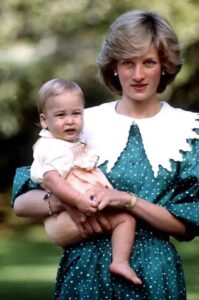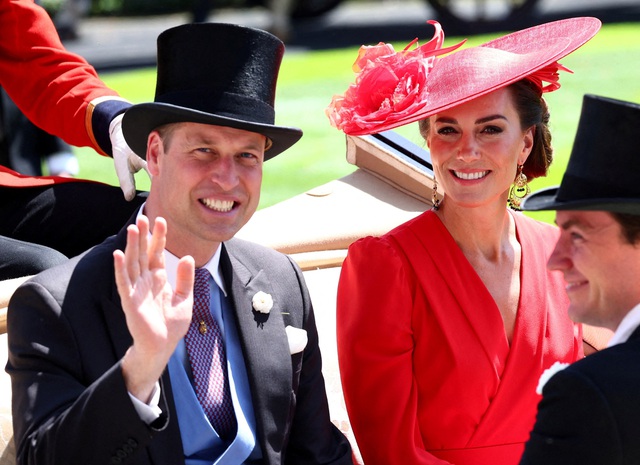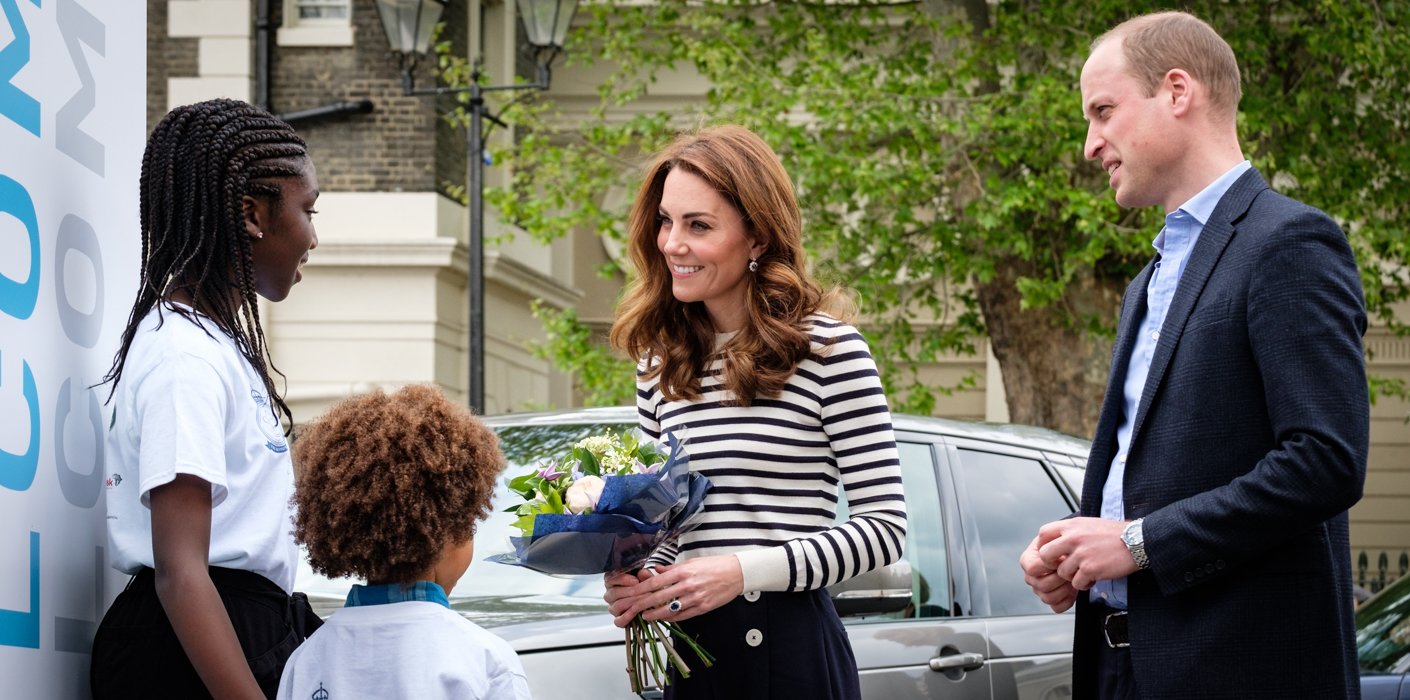In a world where royal duties often seem steeped in tradition and ceremony, Prince William, the Prince of Wales, has embarked on a deeply personal and ambitious mission to tackle one of society’s most pressing issues: homelessness. This initiative, rooted in a childhood experience with his late mother, Princess Diana, reflects not only his commitment to social change but also his desire to carry forward her legacy of compassion. Through his five-year program, Homewards, William is working to transform the lives of thousands across the United Kingdom, proving that royalty can be a force for tangible good in the modern era.
A Childhood Lesson That Shaped a Prince
The seeds of Prince William’s passion for addressing homelessness were planted when he was just 11 years old. Accompanied by his mother, Princess Diana, he visited a shelter for the homeless in London. Diana, known for her hands-on approach to charity, wanted her sons to understand the realities faced by those less fortunate. For young William, the experience was eye-opening. He encountered people living in circumstances vastly different from his own, yet he was struck by their resilience and the warmth of their interactions. Playing chess and chatting with residents, he began to see homelessness not as a distant problem but as a human issue deserving of empathy and action.

This moment left an indelible mark. Over the years, William has spoken about how his mother’s approach—treating everyone with dignity, regardless of their circumstances—inspired him to take up causes that others might overlook. Homelessness, a complex and often stigmatized issue, became a cause close to his heart. His early exposure to the realities of life on the streets, coupled with Diana’s belief in the power of small, meaningful gestures, set the stage for what would become one of the most significant initiatives of his public life.
The Birth of Homewards: A Bold Vision
In June 2023, Prince William launched Homewards, a five-year program aimed at ending homelessness in six specific regions across the UK: Aberdeen, Bournemouth, Christchurch & Poole, Lambeth, Newport, Northern Ireland, and Sheffield. The initiative is backed by the Royal Foundation, the charitable organization he co-founded with his wife, Catherine, Princess of Wales. Homewards is not about temporary fixes or superficial aid; it seeks to create lasting, systemic change by addressing the root causes of homelessness and fostering collaboration among local communities, organizations, and experts.
The program’s approach is multifaceted. It provides financial support, with each of the six regions receiving up to £500,000 to fund innovative solutions tailored to local needs. Beyond funding, Homewards brings together specialists, policymakers, and those with lived experience of homelessness to develop strategies that prevent people from losing their homes in the first place. The initiative also aims to shift public perceptions, encouraging society to view homelessness as a solvable problem rather than an inevitable one.
William’s vision is ambitious: to make homelessness “rare, brief, and non-recurring.” This means not only helping those currently without homes but also ensuring that future generations are protected from the cycle of poverty and displacement. By focusing on prevention, early intervention, and community-driven solutions, Homewards represents a forward-thinking approach to a problem that affects an estimated 300,000 people in the UK, including many children.

A Hands-On Royal: William’s Personal Commitment
What sets Homewards apart from other royal initiatives is Prince William’s hands-on involvement. He is not content to simply lend his name to the cause; he is actively engaged in its execution. In the first year of the program, he visited each of the six regions to meet with local leaders, charities, and individuals affected by homelessness. These visits were not mere photo opportunities but opportunities to listen, learn, and refine the program’s strategies based on real-world insights.
One notable moment came when William volunteered at The Passage, a London-based charity supporting the homeless, during a Christmas event. Wearing a green sweater and apron, he helped prepare and serve meals, chatting and laughing with guests and staff. His ease in these settings, a trait inherited from his mother, underscores his genuine commitment. He has also taken to the streets, selling copies of Big Issue, a magazine sold by homeless individuals to earn income, to raise awareness and connect with those directly impacted.

William’s involvement extends beyond public appearances. He has personally funded aspects of Homewards, drawing on resources from the Royal Foundation and his role as the Duke of Cornwall, which provides him with significant financial assets. His willingness to invest his own resources signals a level of dedication that resonates with both supporters and skeptics of the monarchy.
The Scale of the Challenge
Homelessness in the UK is a daunting issue. Rising living costs, stagnant wages, and a shortage of affordable housing have exacerbated the problem, leaving many families and individuals vulnerable. Children make up a significant portion of those affected, often living in temporary accommodations or with relatives due to a lack of stable housing. The emotional and psychological toll of homelessness is profound, with long-term impacts on health, education, and opportunity.
London, in particular, faces a severe crisis, with over two-thirds of the UK’s homeless population residing in the capital. The causes are complex, ranging from economic inequality to mental health challenges and domestic abuse. For many, homelessness is not a single event but a recurring struggle, making prevention and long-term support critical.

Homewards tackles these challenges by emphasizing collaboration. In each region, the program fosters coalitions of local stakeholders, including businesses, charities, and government agencies. These partnerships aim to create a network of support that addresses both immediate needs, such as emergency shelter, and structural issues, like access to affordable housing. By involving people who have experienced homelessness in the planning process, Homewards ensures that solutions are grounded in real-world realities rather than top-down assumptions.
A Legacy of Compassion
Prince William’s work on homelessness is deeply tied to his mother’s legacy. Princess Diana was a trailblazer in using her platform to highlight marginalized communities, from those affected by HIV/AIDS to the homeless. Her ability to connect with people on a human level, regardless of their status, was a hallmark of her public life. William has inherited this quality, but he is also carving his own path by focusing on systemic change rather than solely on raising awareness.
The Homewards initiative is a testament to this evolution. While Diana’s visits to shelters brought attention to the plight of the homeless, William is taking a more strategic approach, leveraging his position to mobilize resources and influence policy. His goal is not just to alleviate suffering but to create a model that can be replicated across the UK and beyond. If successful, Homewards could redefine how society addresses homelessness, proving that even the most entrenched problems can be solved with determination and collaboration.
Public Response and Future Prospects
The public response to Homewards has been overwhelmingly positive. Many admire William’s willingness to tackle a difficult issue with both empathy and pragmatism. His ability to connect with people—whether serving meals at a shelter or discussing policy with experts—has earned him respect as a royal who is more than a figurehead. Social media platforms have buzzed with support, with many praising his commitment to carrying forward Diana’s values in a modern context.
However, the initiative is not without its challenges. Critics argue that systemic issues like homelessness require government-led solutions, and some question whether a royal initiative can truly address the scale of the problem. Others point out that the monarchy’s wealth and privilege could be seen as at odds with the issue of poverty. William has acknowledged these concerns, emphasizing that Homewards is about partnership, not replacing public policy. By working with existing organizations and amplifying their efforts, he hopes to bridge the gap between private initiatives and public responsibility.
Looking ahead, the success of Homewards will depend on its ability to deliver measurable results. The program’s five-year timeline is ambitious, but William is optimistic. He has expressed hope that the lessons learned in the six pilot regions can be applied nationally and even internationally. If Homewards achieves its goals, it could serve as a blueprint for addressing homelessness worldwide, cementing William’s legacy as a royal who made a difference where it mattered most.
A Royal with a Purpose
Prince William’s Homewards initiative is more than a charitable project; it is a reflection of his vision for a modern monarchy. In an era where the relevance of royalty is often questioned, he is proving that the institution can evolve to meet the needs of a changing world. By focusing on homelessness, he is addressing a universal issue that transcends borders and backgrounds, reminding us that compassion and action can go hand in hand.
As Homewards progresses, it will undoubtedly face obstacles, but William’s determination and personal connection to the cause make it a beacon of hope. Inspired by his mother’s heart and driven by his own resolve, he is redefining what it means to be a royal in the 21st century. For those struggling with homelessness, and for a nation watching closely, Prince William’s mission is a powerful reminder that change is possible when leadership meets empathy.


